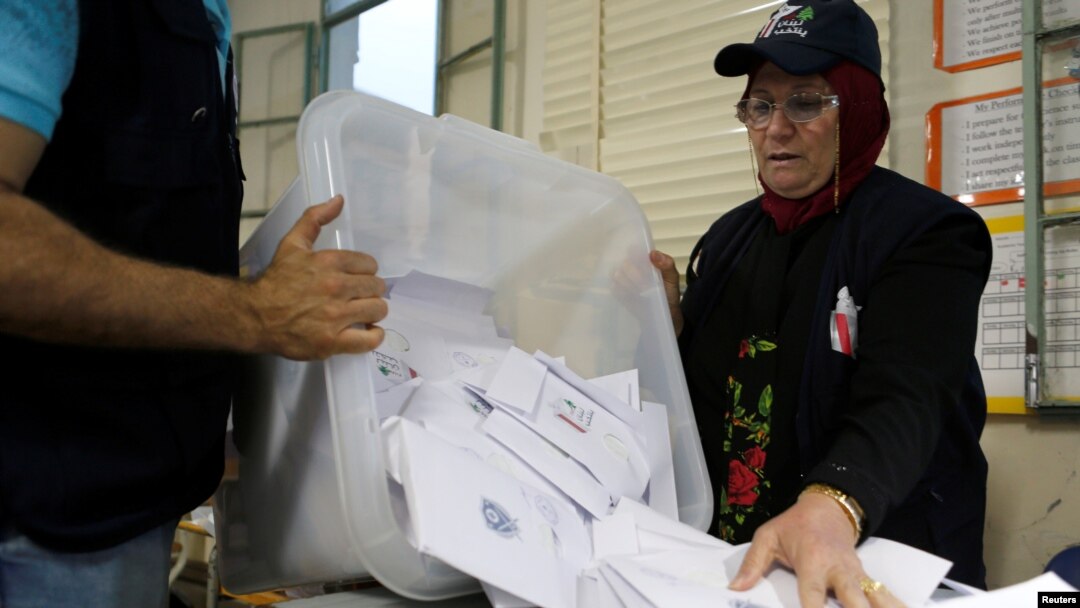Polls have closed across Lebanon 12 hours after voting began in the country's first national election in nine years.
Overall, turnout was tepid throughout the day, even as President Michel Aoun appealed to voters in a televised address an hour before the polls closed to turn out to cast their ballots.
"If you want change, you should exercise your right'' to vote, he said in a message published on Twitter at the same time.
The last election in Lebanon was held in 2009 for what was supposed to be a four-year term. But the outbreak of a civil war in neighboring Syria forced the parliament to extend its term twice, due to security concerns.
The main competition is between the Western-backed coalition of Prime Minister Saad Hariri's Future Movement Party and the Iranian-backed Hezbollah group.

Lebanese prime minister and candidate in the parliamentary election Saad Hariri greets supporters in Beirut, Lebanon, May 4, 2018.
Eighty-six women are running for seats in Lebanon's 128-member parliament that is equally divided between Muslims and Christians.
Hezbollah and its allies are expected to add more seats, while Hariri’s party is likely to lose several. Some of his Sunni supporters see him as being too soft on Hezbollah. The billionaire businessman has also faced criticism after laying off scores of employees from his companies in Lebanon and Saudi Arabia.
Still, Hariri likely will be named to form a national unity Cabinet. The rival sides are expected to re-create the unity government that currently exists, which includes Hezbollah.
Early results were expected to start coming in later Sunday, but official results are not expected to be announced before Monday.

A woman shows her ink-stained finger after casting her vote during the parliamentary election in Beirut, Lebanon, May 6, 2018.
Security was tight to prevent tensions from spilling over near most polling stations and Interior Minister Nouhad Mashnouk said things appeared to be under control.
Arab news channels showed video of what they claimed was a woman candidate being harassed by Hezbollah supporters in southern Lebanon. VOA could not independently confirm the claim.
Veteran Lebanese Christian political leader Dory Chamoun told VOA he and many other Lebanese were eager to cast their ballots "after a long drought."
WATCH: Lebanon elections
Your browser doesn’t support HTML5
Lebanon's Long-delayed Election Unlikely to Change Balance of Power
"It was about time we had those parliamentary elections, except that the electoral law, which they came out with, is not exactly something that is an example of democracy," he said.
Chamoun said that he hoped the pro-Western alliance to which he belongs would "win up to 18 seats" in the new parliament, but that he "was not optimistic," given what he considers flaws in the electoral law.
Under Lebanon’s new electoral system, voters cast two votes: one for a list of candidates and another for their preferred candidate within that list. A special formula based on the preferential vote determines who gets the seats.
Edward Yeranian contributed to this report from Cairo.


